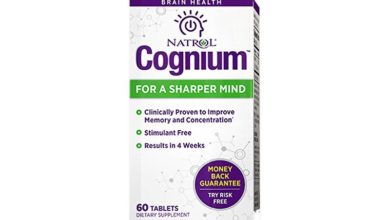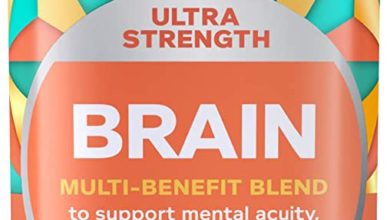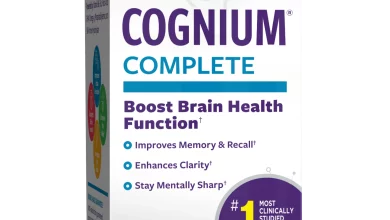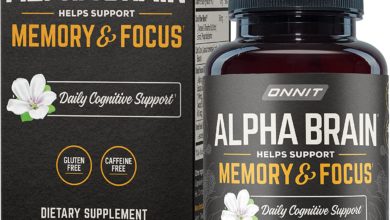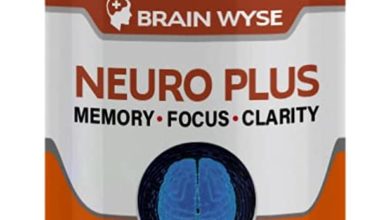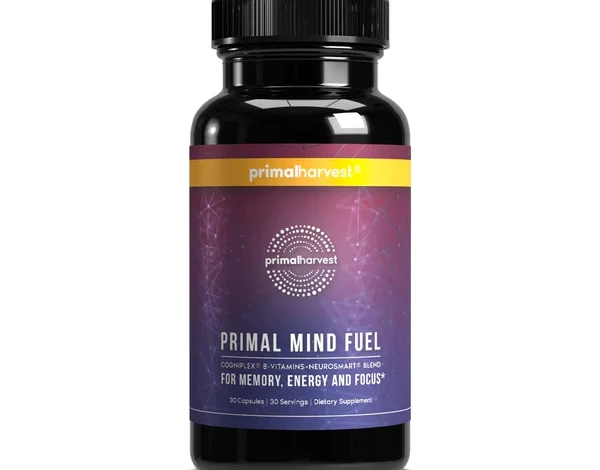
Primal Mind Fuel Reviews
Does it actually improve healthy brain function and mental clarity?
We’re all looking for that edge, whether you want to admit it or not. If you can improve your cognitive abilities and reduce mental fatigue, you will, it’s just a fact. This is why cognitive support supplements such as Primal Mind Fuel are increasing in popularity internationally, as everyone is looking to be the best version of themselves that they can, and usually in the most convenient way available. The question todays article aims to answer is simple: How does the offering by Primal Harvest fare when under a microscope?
We’re going to go into detail about the ingredients here and break everything down for you, but for those just looking for a quick yes or no, we do not recommend Primal Mind Fuel, and would instead direct you towards Hunter Focus. This is a far more competent nootropic supplement, with all natural ingredients that all hold up to scientific scrutiny. If you’re looking for something that is well researched and uses only the best and most reliable ingredients, whilst respecting their consumers with an honest and transparent list of ingredients, you really can’t do any better than Hunter focus.
You can Shop Hunter Focus Deals Here
Let’s get straight into it.
Ingredients Breakdown
Vitamin B6 – 10mg
B Vitamins ofcourse have a lot in common with one another, but what distinguishes them from other vitamins is the role they play in metabolism and energy levels. From transporting energy into cells to being catalysts for enzyme reactions during digestion, B vitamins have a hand to play in all of it. This is why their so essential in our diets, and also why they’ve been so well researched.
Nootropics such as Primal Mind Fuel are marketed for their ability to improve cognitive performance by enhancing mental focus and concentration, among other things. This is where B vitamins come into play, and as such they’re a very common sight in pretty much any nootropic supplement on the market today.
When it comes to vitamin B6 specifically, it plays many vital roles in the bodies energy production, and as most of the energy our bodies create goes directly to the brain, deficiency can have an enormously detrimental effect of brain health. Vitamin B6 deficiency has been found to potentially halve the brains glucose supply, severely impacting your ability to think clearly, as well as showing cognitive decline in the limbic system, sensory motor system and hypothalamic system [1]
Vitamin B12 – 6mcg
Both B6 and B12 are probably the most commonly known of the B vitamins, thanks in large part to how they’re often egregiously plastered all over energy and sports drink bottles. As we’ve already discussed the important role of B vitamins in your bodies energy, this makes a lot of sense, especially with B 12 as it’s most common symptom of deficiency as brain fog [2].
The most common source of B vitamins is animal products, which makes sense as the rise of deficiency correlates directly with the rise of plant-based diets in the west. This is quite the public health concern when you consider that Vitamin B-12 plays many important roles in energy production, but is also required for the development, maturation and functioning of the central nervous system, healthy red blood cell formation and DNA synthesis [3].
Vitamin B1 – 2.5mg
Vitamin B1, also known as Thiamin, is a less spoken about B Vitamin than the previous two, but is just as important. One key characteristic of Thiamin is it’s short half-life, which essentially means that if it’s not used when it’s absorbed, our bodies don’t retain it. This means we need a constant supply of it, as well as meaning deficiency is unfortunately easy to fall into. Luckily it’s quite available in many foods, and if you’re someone who eats cereal you have very little to worry about as almost all cereals are fortified with Vitamin B1 [4].
When it comes to maintaining healthy cognitive function, Thiamin is very important as it’s majorly responsible for the brains glucose metabolism for energy utilization and neurotransmitter synthesis. Considering that the brain uses ten times it’s body mass in glucose and that thiamine-dependant enzymes are required for this to work, a deficiency of Thiamin, especially over a long period of time, will cause brain fog and reduce mental performance as a result, with the symptoms being very similary to that of Alzheimer’s disease [5].
Neurosmart (Proprietary Blend) – 314.05mg
Proprietary blends are a major red flag when it comes to natural supplements of all kinds. The idea is that it’s protecting the brands formula, but in reality it’s protecting their profits by obscuring important information from their customers. We get that for a lot of people, we see the ingredients on the back on only recognise a few more widely known names such as caffeine and vitamins. This is why proprietary blends are actually used, as it essentially allows companies to put negligible amounts of the best ingredients in so they can make a fuss about how amazing the ingredients are, but when under-dosed they will have no effect, no matter how great the ingredient is.
There is fortunately a way to read a proprietary blends in order to approximate doses, and even though it’s an imprecise art, it’s enough to determine whether or not an ingredient is properly dosed or not. This is possible because companies are required to list ingredients in order, with the highest dose at the top and the lowest at the bottom. You can use this to determine how much of something there likely is, as it won’t be higher than what’s above it or lower than what’s below it.
This is a unique example however, as primal mind fuel didn’t always hide their doses, and because of this we were able to find an older nutritional label that stated doses. It’s fair to say that they may have changed the formula a tad now that the information is obscured, but all of the numbers line up perfectly so it’d be rather odd if the formula itself had changed at all.
Caffeine Anhydrous
Caffeine is one of those no brainer ingredients when it comes to nootropic supplements, as it’s the most widely used psychoactive drug in the world. Those of us without sensitivity to it are quite likely to already use it to help with mental focus and concentration because it’s just so effective. If you don’t know how or why caffeine works, the simplified version is this: Throughout the day our bodies slowly release a chemical known as Adenosine, and we get sleepy as it builds up in our brains. Caffeine essentially blocks the adenosine from binding to the receptors, making you feel more alert and helping to improve mood.
With that in mind you can see how caffeine is the perfect antidote to tiredness when you need to perform, but what does the scientific research say? Luckily with it being so widely used, it’s also been widely researched so we have a lot to go on. We found a systematic review taking various high quality, independent clinical trials in order to compile and cross reference the results. They had this to say: “Caffeine facilitates learning in tasks in which information is presented passively. Caffeine facilities performance in tasks involving working memory, and appears to improve memory performance under suboptimal alertness (lack of sleep, poor sleep quality etc.). It’s indirect action on arousal, mood and concentration contributes in large part to it’s cognitive enhancing properties [6].
With it being first in the blend, it’ll take up the most volume, and with what we find there’s supposedly 110mg. That’s a pretty high dose of caffeine all things considered, with the usual cup of coffee containing anything from 80-100mg. If you get the jitters from a cup of joe then it’s fair to assume you’d have a similar reaction to this, so proceed with caution.
L-Ornithine HCI
This non-essential, non-protein amino acid is contained in various foods, though the amount is typically rather small. There’s evidence suggesting that when administered orally, it was able to reduce the stress response of animals. With this in mind, it caught the attention of the medical science community, who have since put it through rigorous testing to determine whether or not it would have similar effects in human trials.
We found a very promising 2014 trial that took 52 apparently healthy Japanese who had reported experiencing stress and fatigue. These were then randomly divided into placebo(control) and intervention groups who received 400mg of L-Ornithine per day. The results showed the intervention group had a significant reduction in their serum cortisol levels, which if you weren’t aware is the stress hormone. The subjects also reported a reduction in anger and increase in sleep quality, but even though this is anecdotal it makes sense, as high cortisol levels are most commonly found in those suffering poor sleep quality [7].
This makes L-Ornithine a very good ingredient for a nootropic supplement, as sleep quality and stress can have massive impacts on cognitive abilities. The unfortunate thing is, 400mg takes up a lot of space when we’re looking at packing as much goodness as possible into these little capsules, so unless the results were exceptional, it’s unlikely to really pick up steam in the wider nootropic world. This 400mg is also more than this entire propriatary blend combined, and our findings have the dose at 100mg, so we don’t imagine this inclusion will have much of an effect at all.
L-Tyrosine
This is another non-essential amino acid that the body actually makes from another amino acid named phenylalanine. It’s an essential component for the production of several important neurotransmitters including epinephine, norepinephrine and dopamine. This has ofcourse made it the focus of much research into cognition, with it being tested as a way to improve brain health, especially for those within the military and those later in life.
It’s been highly successful in such tests, such as one that showed tyrosine supplementation was able to reduce task switching time, showing that it was able to improve cognitive flexibility [8]. It’s also been found to reduce cognitive impact of physical stressors, including extended wakefulness, cold stress and high-altitude stress, which is where the military interest comes in [9].
This all makes L-tyrosine an exceptional nootropic supplement, but again, it’s the dosing where Primal mind fuel have gone wrong. What we found would suggest that there’s 100mg of the stuff, which just is not enough. The typical dosing in trials ranges from 400mg all the way up to 20g, though that’s on the extreme side of things. Reasonably what you’d expect to provide good results would be about 500mg per day, a far cry from what’s included here.
Theobromine
Chocolate is something that is almost entirely associated with being unhealthy for you, and this is definitely the case for milk and white chocolates, but genuine dark chocolate contains a number of compounds that we’ve found have multiple positive health benefits. Theobromine is one such compound, being present in the cacao bean and surviving the entire process to be found in the end product.
It’s a stimulant quite similar to caffeine, and although it’s typically understood to be less effective than caffeine in general, there’s certain aspects of it that make it more effective in specific circumstances, and for certain individuals. For example, it releases a lot slower than caffeine, which peaks about 30 minutes after consumption. Theobromine instead peaks about 2-3 hours after consumption, and this slower release can help ease certain issues caffeine carries, such as the dreaded mid-day crash.
With higher doses, some trials have found rather significant results, such as a 2011 study that found 700mg of theobromine lowered the patients blood pressure, decreased self-report calmness and increased subjects ratings of how interesting they found the performance of study tasks [10]. Again, dosage is the problem, with Theobromine requiring more than double this entire blend contains itself. The issue is further compounded when was we found listed only 1mg of Theobromine was present in Primal Mind Fuel.
Rhodiola Rosea Extract
Having been used in traditional medicine for centuries in Scandinavian countries and Russia for it’s treatment of fatigue, depression, anemia, impotence, infections and nervous system disorder, Rhodiola rosea extract has since been studied in order to determine it’s true effectiveness, with incredible results.
Pharacological studies of Rhodiola rosea extract and it’s main bioactive compounds have demonstrated adaptogenic, anti-fatigue and anti-stress effects, with it being considered to be neuroproetective, carioprotective and hepatoprotective, as well as enhancing cognitive functions via it’s stimulation of the central nervous system, learning, memory and focus [11].
It makes sense then that this is one of the most commonly used nootropic ingredient, with it’s wide array of positive effects. Ofcourse, as we’ve found is commonplace at this point, primal mind fuel has fumbled the landing by including, again, only 1mg of this incredible ingredient. Remember when we said companies typically use propriatary blends to hide poor dosages of great ingredients? Starting to ring true, isn’t it?
Bacopa Monnieri Extract
Another incredibly popular and potent natural nootropic here that you’ll find in most competent nootropic supplements. In ancient days it was recognised for it’s ability to enhance peoples cognitive abilities, and was used for centuries in Ayurvedic medicine to treat mind-related health concerns. It’s known by many names throughout the world, such as Brahmi, Water Hyssop etc.
It’s popularity is well founded, as it’s historical use has been vindicated by modern scientific testing showing it’s effects are really quite potent. We found a systematic review taking numerous studies into various different aspects of Bacopa as a nootropic, which identified a number of different uses, such as it’s ability to attenuate dementia, Parkinson’s disease and epilepsy, with the mechanisms ranging from increasing cerebral blood flow, neurotransmitter modulation, anti-oxidant neuro-protection, and much more [12].
It almost goes without saying at this point but again, the dosage is 1mg, which is just not going to have any notable effect at all.
D-Glucuronolactone
This natural occurring substance is produced in small amounts by the body, and is a very commonplace ingredient in energy drinks such as Red Bull. It’s considered a bit of an unknown as there’s not been a lot of research, leading to it being a not very well understood inclusion. As we were scouring the internet for clinical trials there is very little in the way of useable data, with us finding a trial of it’s use in rats which simply studied it’s bioavailability/ accumulation in the body, with the most valuable information being that it peaks in the bloodstream 1-2 hours after consumption and does not accumulate [13].
With that in mind we’ve little to say here. The fact it’s used in energy drinks is likely what guided it’s inclusion here, with very little regard for the lack of knowledge into it as a supplement.
Huperzine A
Huperzine A is a plant-based alkaloid found in the Chinese club moss H. Serrata, which is also known as the “Tea of heaven”. This plant has been used for centuries in Asian medicine to treat fever, inflammation and mental disorders, but how does it stand up to todays medical standards?
The results are actually quite positive, with us finding one study that found it’s inhibitory effects on acetylcholine manages to increase the levels of it in the brain, and as such provides a therapeutic effect on patients with dementia, improving their cognitive function [14].
Unfortunately Primal mind fuel have included only 0.05mg of the stuff, seemingly taking inspiration from the homeopathic branch of medicine.
Verdict
Well there we have it, a package of fantastic ingredients marred with unfortunate dosing choices, covered up by a proprietary blend. Just as we explained as we were talking about proprietary blend our suspicions of poor dosing were exposed, as they all are in the end, showing that Primal mind fuel is more interested in looking competent than being competent, an unfortunately common and lucrative tactic that is pervasive throughout the world of natural supplements, given them a bad rep.
That’s why we’d instead recommend Hunter Focus, a reputable brand that values it’s customers with genuine transparency. Brands like HunterEvolve have garnered a fantastic reputation after releasing stellar supplement after stellar supplement. You can enjoy the benefits of the best ingredients primal mind fuel has to offer, as they’re actually dosed correctly in Hunter Focus, as well as it containing a whopping 20 incredible, scientifically backed ingredients in total, absolutely trumping the competeition as the most potent, highly dosed nootropic supplement available today.
References
1 – https://www.sciencedirect.com/science/article/abs/pii/S095528639
2 – https://pubmed.ncbi.nlm.nih.gov/33936299/
4 – https://ods.od.nih.gov/factsheets/Thiamin-HealthProfessional/
5 – https://www.ncbi.nlm.nih.gov/pmc/articles/PMC4846521/
6 – https://pubmed.ncbi.nlm.nih.gov/20182035/
7 – https://www.ncbi.nlm.nih.gov/pmc/articles/PMC4055948/
8 – https://pubmed.ncbi.nlm.nih.gov/25598314/
9 – https://www.ncbi.nlm.nih.gov/pmc/articles/PMC1863555/
10 – https://www.ncbi.nlm.nih.gov/pmc/articles/PMC3672386/
11 – https://www.ncbi.nlm.nih.gov/pmc/articles/PMC10418374/
12 – https://www.ncbi.nlm.nih.gov/pmc/articles/PMC3746283/
13 – Scientific Committee on Food European Commission, Health & Consumer Protection Directorate-General. Opinion of the Scientific Committee on Food on additional information on “energy” drinks. Published March5, 2003. http://ec.europa.eu/food/fs/sc/scf/out169_en.pdf
